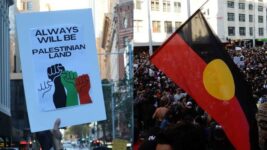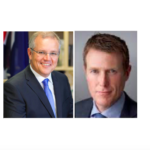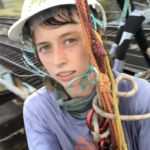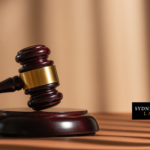Sydney Festival Boycott Grows Due to Sponsorship from Apartheid Israel

The ever-growing boycott of the coming Sydney Festival over its partnering with the Israeli embassy in Canberra, is hardly surprising given the more than 70 years of oppression Palestinians have faced, which this year saw yet another escalation in unbridled violence on the part of Israeli forces.
The partnership involves the festival receiving $20,000 to fund a Sydney Opera House performance by Israeli choreographer Ohad Naharin, and in return, the Israeli embassy is cast as a star partner of the event, with the Israeli Ministry of Foreign Affairs logo appearing on merchandise.
A coalition of local artists sent a letter to festival organisers a fortnight ago, calling on them to withdraw from the Israeli partnership, however Sydney Festival responded that while it had reconsidered its position, it decided to go ahead with the arrangement.
So, an increasing number of artists and organisations are pulling out of the key annual event.
This has included novelist Michael Mohammed Ahmad, video artist Khaled Sabsabi, comedian Nazeem Hussain, the Arab Theatre Studio, Bankstown Poetry Slam, as well as a rising number of First Nations artists that were set to have appeared.
Crimes against humanity
Boycotting Israeli entities, whether financially or via non-involvement, is a strategy Palestinians and their allies adopted from the South African Anti-Apartheid movement.
Indeed, BDS (Boycott Divest and Sanctions) Australia is a leading voice in the campaign to boycott the 2022 Sydney Festival.
Last April, a Human Rights Watch report found that the dispossession, confinement, forcible separation and subjugation that Israel subjects the Palestinian people to is “so severe that they amount to the crimes against humanity of apartheid and persecution”.
Israeli forces bombarded the 2 million Palestinians confined to the open-air prison that is Gaza for eleven days last May, which saw 248 Palestinians killed – a quarter of whom were children – while the death toll on the opposing side was a dozen Israeli lives.
The persecution and dispossession of the Palestinians commenced in 1948 with the Nakba, which saw 750,000 Indigenous people displaced. And the encroachments upon Palestinian lands, and indeed, on their basic rights has continued ever since.
Resisting settler colonialism
Respected journalist Darumbal and South Sea Islander woman Amy McGuire announced she’d be pulling out of the Sydney Festival on 22 December.
On the following day, well known rapper Malyangapa and Barkindji woman Barkaa announced she was doing the same.
While this week has seen Marrugeku, an intercultural dance company comprised of First Nations and non-Indigenous performers, pull out of the event in solidarity with the Palestinian people, as well as Wiradjuri installation artist Karla Dickens.
In a piece in the December issue of the Sunday Paper, McGuire outlined that ongoing resistance to a colonial project underway on their homelands is common to the First Nations people of this continent and the people of Palestine.
“The invasions ended but settler colonialism continued,” McGuire writes, “and the very purpose of it, to ‘eliminate the native’, is still at the very core of the project.”
“There are continual attempts to erase Indigenous presence from our own lands.”







